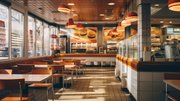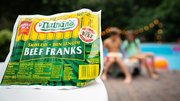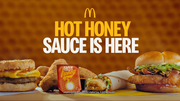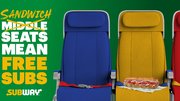Article
365 days of quick-serve
QSRs weathered food safety, health concerns in 2007.

January 2, 2008
For QSRs, 2007 got off to a difficult start. Still reeling from an E. coli outbreak traced to tainted Californian lettuce served at Taco Bell in late 2006, the industry's image took another hit in February when video of rats at a KFC/Taco Bell in New York City spread to television and computer screens nationwide.
While same-store sales at parent company Yum Brands Inc. dropped 3 percent for the quarter following the video's release, other restaurants got caught in the crossfire. The New York City Department of Health stepped up its restaurant-inspection efforts around the city and temporarily closed dozens of restaurants for failing inspections.
The restaurant where the rats were filmed was closed permanently, and the inspector who had given the restaurant a passing grade on a recent health inspection resigned her position.
While food safety was paramount in the minds of many consumers, several chains met demands for healthier options on the menu. Throughout the year, Dunkin' Donuts, KFC, Burger King, Fatburger and Arby's all announced the switch to trans-fat-free cooking oil. McDonald's unveiled plans to use its new oil in all of its 13,700 U.S. restaurants by early 2008. Subway rolled out its Fresh Fit meals in March, incorporating items such as sliced apples, raisins and low-fat milk. And Burger King announced it was restricting advertising to children and would offer Fresh Apple Fries, red apples sliced to resemble real fries served in a Frypod.
As many consumers seemed to become more health conscious, cities, states and counties across the nation proposed menu-labeling bills that would require restaurants to disclose nutritional information, particularly by posting calorie counts on menu boards. Such attempts drew cries from restaurants already providing information in another format as well as from the National Restaurant Association, which opposes a one-size-fits-all approach.
"Restaurants should have flexibility and freedom in how they may choose to provide nutrition data to their customers," Maureen Ryan, media relations manager for the National Restaurant Association said. "Restaurateurs deliver nutrition information in ways that work best for them and their customers — including pamphlets, kiosks, tray liners, Web sites and more."
The laws were pending in 11 cities, states and counties stretching from New York to Chicago to Hawaii. Ten other proposals were tabled or defeated. Of these, perhaps California's was most well known; Gov. Arnold Schwarzenegger vetoed the bill in October, denouncing it as "unfair" and "inflexible."
So far, only one has succeeded in passing such a bill. King County, Wash. — which includes Seattle — enacted legislation in July (that will go into effect in August 2008) that applies to chains with at least 10 units and collective annual sales of at least $1 million.
But many eyes remain on New York City, waiting to see how the legislation will fare there.
Jim Salerno, vice president of operations for Atlanta-based Carvel Ice Cream, said approximately 75 of the chain's 570-unit ice cream locations could be affected if the bill passes.
"A lot of municipalities — such as Nassau County, which is on Long Island — and the entire state of New York are waiting to see how the Board of Health makes out in New York City," he said. "However they go is probably how the other areas will follow."
Higher wages, fewer jobs?
In July, the federal minimum wage increased 70 cents to $5.85 an hour. Congress approved additional increases: Another 70-cent raise will take effect in 2008, and by summer of 2009 all minimum-wage jobs will pay at least $7.25.
The immediate impact of the wage hike is unclear; however, in May, acting NRA interim president Peter Kilgore said the increase would cost the industry jobs.
After the last federal wage hike in 1996, NRA research found that the restaurant industry lost more than 146,000 jobs and operators postponed plans to hire an additional 106,000 employees.
| ||||||||||||||||||
Along the same lines, The Arizona Republic reported in February that a state wage hike led to cuts in the teenage work force. With payrolls increasing, employers were cutting hours, operating under hiring freezes and laying off employees, often teenagers.
A hot transition
Coffee was a hot topic among QSRs in 2007, as many operators sought to capitalize on the buzz created by the Starbucks phenomenon. Chains such as Jack in the Box and Wendy's added premium blends to their lineups, while the McDonald's upgraded brew contributed to increased same-store sales and outranked Starbucks, according to Consumer Reports.
But the world's No. 1 fast-food chain wasn't content with offering only brewed coffee. In October, McDonald's announced it was testing espresso coffee drinks such as Vanilla Latte, Café Mocha and Caramel Cappuccino in select locations and would make them available in all 13,800 U.S. outlets starting in 2008.
Many franchisees were worried about the costs associated with the rollout — up to $75,000 per restaurant for remodeling and about $25,000 for initial equipment costs. But in early December, McDonald's agreed to pay 40 percent of the cost for restaurant renovations needed to complete the transition.
Steaming ahead
Green was the color of choice for many QSRs as chains adopted eco-friendly packaging and energy-efficient practices.
Subway opened its first Eco-Store — located in Kissimmee, Fla. — with energy-efficient systems, low-flow water fixtures and recycled products and furnishings. The sandwich chain also adopted new packaging initiatives, including using paper napkins made from 100-percent recycled materials and switching the materials in its cutlery and drinking cups.
The Winning Team, a North Carolina-based Arby's franchisee, announced plans to switch its 33 restaurants from conventional natural-gas hot water heaters to solar-powered ones. A total of 132 solar panels will produce hot water for the restaurants, even on cloudy days.
Though the green trend was strong in 2007, it appears to be gaining steam for 2008. Powerhouse McDonald's announced near the end of December that it was testing ways it could reduce the effect of the chain's more than 31,000 restaurants on the environment.
The company is focusing on different initiatives based on specific regions.
"In Japan, which is very land constrained, it's about waste," Bob Langert, vice president of corporate social responsibility, said in a Reuters article. "In Australia, the big issue is water. There is no one-size-fits-all when it comes to environmental initiatives."
Policy / LegislationEquipment & SuppliesInternational FranchisingPackagingBurger/Steak/BBQGoing GreenOperationsFood & Beverage
 ChatGPT
ChatGPT Grok
Grok Perplexity
Perplexity Claude
Claude









